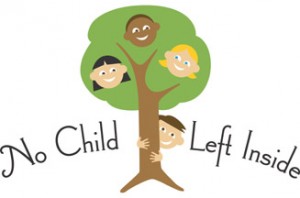 According to the National Science Foundation, social scientists might be useful in a multitude of new ways, especially in long-term research. Following on the heels of astronomy and astrophysics, NSF recently sought suggestions for planning the research agenda of social scientists for the next decade. Working on a relatively short time frame, there were three guiding principles for setting this new agenda:
According to the National Science Foundation, social scientists might be useful in a multitude of new ways, especially in long-term research. Following on the heels of astronomy and astrophysics, NSF recently sought suggestions for planning the research agenda of social scientists for the next decade. Working on a relatively short time frame, there were three guiding principles for setting this new agenda:
– “big underlying questions” that thus far have been underappreciated
– capacity issues: which stages of the educational process need the most help?
– infrastructure issues, eg. setting up longitudinal surveys on important topics
In response to this challenge, a team at Harvard came up with the “top ten social science research issues“, recently published in Nature. A few of us sitting on the social-ecological divide have noted that there is a distinct lack of environmental issues in the list. In all fairness, the original challenge emphasized that existing research programs would be supported and showcased recent funding for the social aspects of environmental issues as a prime example of ways this research is already headed in a favorable direction. The more optimistic of this bunch note that each of the ten social issues is actually intricately linked with the need for a healthy environment and therefore the environmental link is an underlying grand challenge, if you will.
1. How can we induce people to look after their health?
 Well, let’s see… first and foremost I’ll cite the No Child Left Inside campaign as a means to create a healthy, active lifestyle. That, plus the abundance of pharmaceuticals that have been found from natural areas to help cure the sick show that a world without nature can’t possibly be a healthy one. Creating a plan for people to look after their health will undoubtedly involve taking care of the environment as well.
Well, let’s see… first and foremost I’ll cite the No Child Left Inside campaign as a means to create a healthy, active lifestyle. That, plus the abundance of pharmaceuticals that have been found from natural areas to help cure the sick show that a world without nature can’t possibly be a healthy one. Creating a plan for people to look after their health will undoubtedly involve taking care of the environment as well.
2. How do societies create effective and resilient institutions, such as governments?
This priority should be at the top of every disciplinary list – or maybe that’s the point, that it’s the most interdisciplinary of questions. Institutions surround any topic of concern, set research priorities within them, and embed our knowledge within our culture. On a more practical level, effective and resilient institutions ensure that decisions we make as a society, such as conservation, are implemented and enforced to achieve the desired results.
3. How can humanity increase its collective wisdom?
This is again a great, general objective. Of course we’d like to know more about everything, but fundamentally I think this issue gets at a more specific area of studies looking at knowledge. What knowledge counts as legitimate for decision-making? How do we encourage collaborations of learning styles to create new and different types of knowledge? What linkages between disciplines should we actively foster in order to answer pressing social needs? These will surely include people who interact with the environment on a daily basis and an ecosystem approach to management.
4. How do we reduce the ‘skill gap’ between black and white people in America?
Well, ‘skill gap’ is a term that encompasses earlier-in-life effects like resource gap, family history, educational opportunities in the community, quality of the schools? This goes straight back to environmental justice issues, which determine children’s health and opportunities linked to the earliest of life chances.
5. How can we aggregate information possessed by individuals to make the best decisions?
This concept is at the heart of adaptive co-management and the earlier reference to knowledges. If the most and best of the knowledges collected during our expansion of collective wisdom filters to the decision-makers, we stand a chance at effective governance. Environmental governance is perhaps the guinea pig in this field, as some experiments are already in the field, so to speak, in co-management regimes between local communities and federal governments to take charge of a fishery, forest, or grazing land.
6. How can we understand the human capacity to create and articulate knowledge?
Is there an ultimate truth in nature that we can measure or is it more relative, something that is created by an interaction between humans and their environment? How much can we really know about nature and how much is constantly changing and unknowable? These are philosophical issues that have been tossed about the pages of academe for hundreds of years, exemplified now in the social science agenda about knowledge.

7. Why do so many female workers still earn less than male workers?
Ok, I’ll admit this one isn’t exactly tied to the environment. But there are lots of scholars who have tied feminism to an environmental agenda through ecofeminism. The feeling is that the difference is far more deeply seated that just in the workplace. Our Mother Earth isn’t on an equal playing field yet either.
8. How and why does the ‘social’ become ‘biological’?
Perhaps the line between social and biological isn’t black and white, but instead gray and fuzzy. In fact, humans, as ‘the social’, are likely a small part of ‘the biological’. This is a worldview-changing question that might shift the way we look at the other 9 in this list.
9. How can we be robust against ‘black swans’ — rare events that have extreme consequences?
In case anyone hasn’t noticed, most of these ‘black swans’ are natural events and therefore the social scientists who choose to tackle this question might choose to tie their literature in resilience theory. Ecologists have thought about how single events affect and change the ecosystem, bringing into the discussion “tipping points”. These lessons likely spill over into social systems as well.
10. Why do social processes, in particular civil violence, either persist over time or suddenly change?
My guess is that to answer this question, it’s not just the social processes that matters, but how the social is dependent upon a particular environment that can persist or suddenly undergo a regime shift. Most wars are fought over natural resources and the language of both war and wild nature starts to sound eerily similar here. I’m sure it’s not a coincidence.
Hat tip to Steve Carpenter from Resilience Science for the idea for this post.